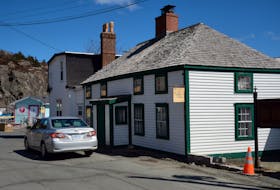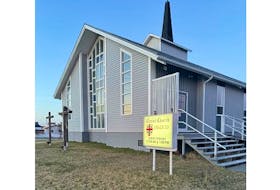
A date with the wrecking ball has been postponed indefinitely for the former High Liner Foods fish plant in Burin. The town officially acquired the facility from the company earlier this month.
After roughly two years of negotiations with the Nova Scotia-based company, the town has acquired the facility, Coun. Betty Francis of the asset management committee said during Tuesday’s council meeting.
The acquisition means the building won’t meet the same fate as Ocean Choice International’s fish plant in Marystown, which closed just a few months prior to High Liner in early 2012 and was demolished this year.
“Council could not accept the demolition of this building without ensuring that every avenue was explored for revitalization of the property,” Francis said. “Council has given the committee the authority to seek out opportunities for the use of these facilities.”
The assessed value of the property is more than $3 million, Francis said, adding it has an approximate floor space of 60,000 square feet.
The fish plant was essentially turned over to the town for free, according to Mayor Kevin Lundrigan, although $10 was required to change hands to make the deal official.
There was also a nominal legal fee involved to make sure the town’s interests were protected, he said.
Lundrigan said council is hopeful another operation will set up shop in the facility at some point.
“That’s our objective because right from the beginning it was going to be torn down and it took a lot of convincing on our side,” he said.
But Lundrigan also credited High Liner for not tearing the structure down and continuing to maintain the plant since the closure.
“I think they had a conscience, too, and I don’t think for a minute they wanted to do anything that was to the detriment of the Town of Burin,” he said.
Initially belonging to Fishery Products International, the facility opened as a secondary fish plant in 1985 and is in good shape, Lundrigan said, adding the building would be an asset to any town.
“At the end of the day, if we can’t find anything else to go there, we can always use it for storage,” he said. “Because (it’s) 60,000 square feet and even if you use half of it for storage, it’ll certainly pay its way.”








